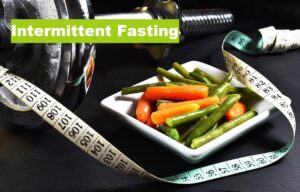
Intermittent fasting has become a popular trend in the fitness world, and for good reason. This eating pattern involves cycling between periods of eating and fasting, with the goal of achieving various health benefits. In this article, we’ll explore the benefits of intermittent fasting in 2023 and answer some frequently asked questions about this eating pattern.
Intermittent Fasting
Intermittent fasting is an eating pattern that involves alternating periods of fasting and eating. There are several different types of intermittent fasting, including:
- The 16/8 method, which involves fasting for 16 hours and eating during an 8-hour window
- The 5:2 method, which involves eating normally for five days a week and consuming only 500-600 calories on the other two days
- Alternate-day fasting, which involves alternating between eating normally and fasting every other day
Benefits of Intermittent Fasting
1. Weight Loss
Intermittent fasting can help promote weight loss by reducing calorie intake and increasing fat burning. By limiting the window of time in which you eat, you may naturally consume fewer calories, leading to weight loss.
2. Improved Metabolic Health
Intermittent fasting has been shown to improve various markers of metabolic health, including blood sugar levels, insulin sensitivity, and cholesterol levels. This can reduce the risk of developing chronic diseases such as type 2 diabetes, heart disease, and cancer.
3. Reduced Inflammation
Chronic inflammation has been linked to many health problems, including obesity and metabolic disorders. Intermittent fasting may help reduce inflammation in the body, which can improve overall health.
4. Increased Lifespan
Some studies suggest that intermittent fasting may increase lifespan and promote longevity. This is thought to be due to the beneficial effects on metabolism and cellular health.
FAQs
Is intermittent fasting safe?
Intermittent fasting can be safe for most people, but it may not be appropriate for everyone. It’s important to talk to your doctor before starting an intermittent fasting regimen, especially if you have any underlying health conditions.
What can I eat during the fasting period?
During the fasting period, you should consume no calories. This means no food, no beverages (other than water, black coffee, or tea), and no supplements that contain calories.
Can I exercise while fasting?
Yes, it’s generally safe to exercise while fasting. However, you may want to adjust the timing and intensity of your workouts to accommodate your fasting schedule.
How long should I fast for?
The length of the fasting period depends on the type of intermittent fasting you’re doing. Some methods involve fasting for only a few hours a day, while others involve fasting for several days at a time. It’s important to choose a fasting method that works for you and your lifestyle.
Conclusion
Intermittent fasting is a popular eating pattern that can offer numerous health benefits. By reducing calorie intake, improving metabolic health, and reducing inflammation, intermittent fasting may help promote weight loss, reduce the risk of chronic disease, and even increase lifespan. If you’re considering trying intermittent fasting, be sure to talk to your doctor first to ensure that it’s safe for you.


